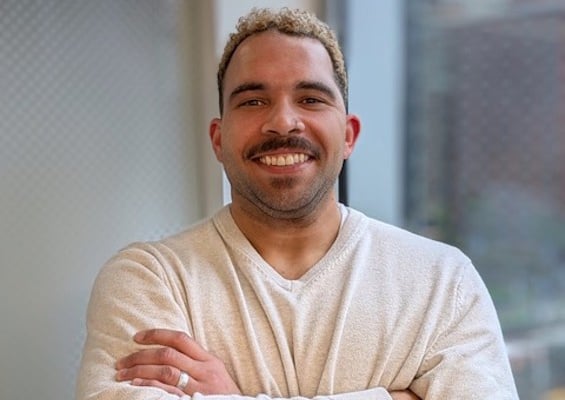The 21st-century gold rush is in full force, and everyone from your neighbor to CEOs of major companies like Anheuser Busch is panning for a chunk of the revenue.
What’s the product? Here are some hints:
- It’s been cultivated for thousands of years
- It’s a plant made up of thousands of chemicals
- Two of those chemicals are heavily commercialized
If you guessed cannabis, you’re correct.
This post dives into the billion-dollar plant, its newly shaped commercialization model, and opportunities in the current marketplace. MBA students at top business schools can seize these opportunities, with the right training.
Cannabis goes corporate and swallows the competition
The United States was late to the game when it comes to legalizing, decriminalizing, and relaxing legislation for cannabis. As a result, U.S.-based companies are scrambling to get a piece of the revenue pie in this booming industry, now primarily dominated by Canadian companies.
Interesting partnerships have formed over the last two years as U.S. giants scramble for their stake in the market share:
- The largest cannabis distributor is Canadian-based Canopy Growth. In 2018, New York-based beer supplier, Constellation, invested $4 billion in Canopy to help scale the production of recreational marijuana in more than 30 countries.
- The second-largest distributor—and first cannabis company to IPO on Nasdaq—is Canada-based Tilray. In 2018, Anheuser-Busch entered into a $100 million joint venture to develop non-alcoholic cannabidiol (CBD) drinks.
- The third-largest distributor, Canada-based Aurora Cannabis, has not yet penned a deal with a corporation, because apparently, U.S.-based consultant Nelson Peltz warned the company against it.
With the cannabis industry growing larger and more competitive than ever, what does it take to find success in the gold rush?
Skills that can advance the modern cannabis industry
Because the legal cannabis industry is relatively new in the global and national economy, students entering top MBA programs are in a unique position. MBA students can specialize their studies toward the growing market demands and new opportunities of the booming industry.
Let’s look at the skills needed to solve business problems that have emerged in the cannabis industry over the last few years.
Business ethics
Ever since marijuana was declared a Schedule I drug in 1970, black and brown communities have been unequally affected by the enforcement of the drug laws. As the U.S. takes a more progressive look at cannabis regulation, a common argument is that legal cannabis is helping fix social ills, and under-represented communities will now have a fair shake in the now-legal trade.
However, looking at the number of mergers and acquisitions and partnerships, we see that white males heading giant corporations are taking majority control of this industry. This means minority communities are still missing out on the revenue.
The underrepresentation of people of color in the cannabis community is a real problem that needs to be solved. By taking advanced classes in business ethics at UC Berkeley — a school that places a keen focus on diversity and inclusion in the marketplace — you can acquire the tools to critically assess modern problems in the industry, and develop unique solutions.
For example, questions like the following are part of valid, critical conversations to have with classmates and professors during your MBA studies:
- How can we make weed fairer by focusing on inclusivity?
- Should the government run monopolies on cannabis, as some states do with alcohol?
- How can ‘ma and pa’ shops keep up if corporations drive the price of the product down?
There are additional aspects of the cannabis industry that might require a closer eye on business ethics. For example:
- Does wider-scale planting and watering of cannabis require increased regulation to minimize the environmental impact?
- Does the marketing of cannabis impact children? Meaning, are packages of edibles easily confused for mints or candy by unknowing children?
By emphasizing business ethics in your MBA studies, you can help navigate, problem solve and communicate unique ways to handle the grey areas of the cannabis industry while regulation is still very much in its infancy.
Social impact
Because of the partnerships outlined above, cannabis companies are shifting their business models to match those of the alcohol industry.
According to Ben Cort, a well-known advocate for Marijuana Policy, cannabis is following the 80/20 rule, which means focusing on the 20 percent of customers who consume 80 percent of your product. It’s a rule that Cort says many powerhouses in the alcohol industry follow.
Cort also believes, as in the alcohol industry, the 20 percent of high-use consumers are low-income, minorities. Part of the reason for high usage in this demographic is its proximity to dispensaries and grow ops. According to the Denver Post, many grow ops and dispensaries have opened their doors in communities of color and lower incomes because they are near industrial sites — prime real estate for pot growers.
These findings show that under-served communities aren’t only missing out on the revenue, they may be negatively affected.
By emphasizing social impact in your MBA studies, you can start to define ways to help under-represented communities fight the complexities of a booming, legal pot industry like:
- Home values declining due to proximity of pot grow ops
- Rising crime
- Youth marijuana usage
Design thinking
As we mentioned earlier, the lack of diversity and inclusion in the cannabis industry is an existing problem. Reports show that entrepreneurs of colors account for only 4.3 percent of the industry.
Chelsea Solomita, a Southern California-based UX designer, has a problem with this statistic. Especially considering that Blacks are 3.73 times more likely than whites to get arrested for marijuana in states where marijuana isn’t legal. Moreover, even in states where cannabis is legal, black people are still arrested for marijuana charges at a rate nearly 16 times higher than white people.
Solomita thinks that by applying design thinking to the industry's lack of diversity, we can solve several problems. Solomita began learning ways people of color can use technology and other tools to participate in the cannabis industry. The result is a business based on design-thinking called Grow, which focuses on:
- How, post-incarceration, marijuana offenders can re-enter society as successful entrepreneurs.
- How ‘ma and pa’ cannabis growers can obtain vocational training to work in the modern business world.
Berkeley’s MBA program offers design thinking courses, a focus on diversity and inclusion, and participatory events like hackathons. These programs and events can help you, like Solomita, apply design thinking to solve socio-economic issues that arise when industries like cannabis start booming.
Making a strategic entrance into the cannabis industry
The opportunities to enter the cannabis market and challenge the status quo are endless. However, to successfully enter the market, you must first acquire the skills to do so strategically.
With an MBA from UC Berkeley, you can learn how to successfully pinpoint the market needs and gaps. The knowledge and skills you develop will help you become a strong business person in this competitive and thriving global space.
Apply now, to start your journey as an innovator in the cannabis industry.
/liz-120.png)








